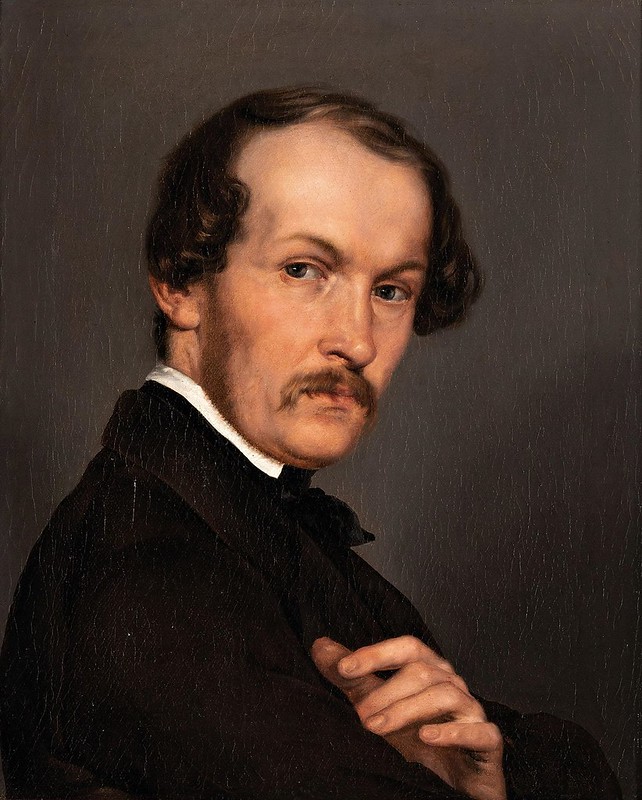Gaetano Donizetti (1797-1848)
- Sinfonia (in re minore) per la morte di [Antonio] Capuzzi (1818)
Performers: Camerata Budapest; László Kοvács (conductor)
---
Italian composer. His father was from a poor family of artisans who
obtained the position of caretaker in the local pawnshop. At the age of
nine, he entered the Lezioni Caritatevoli di Musica, a charity
institution that served as the training school for the choristers of S.
Maria Maggiore; he studied singing and harpsichord there, later studying
harmony and counterpoint with J.5. Mayr. With the encouragement and
assistance of Mayr, he enrolled in the Liceo Filarmonico Comunale in
Bologna in 1815, where he studied counterpoint with Pilotti; later, he
studied counterpoint and fugue with Padre Mattei. His first opera, Il
Pigmalione (1816), appears never to have been performed in his lifetime.
He composed two more operas in quick succession, but they were not
performed. Leaving the Liceo in 1817, he was determined to have an opera
produced. Mayr helped him to obtain his first professional engagement, a
commission that resulted in Enrico di Borgogna, performed in November
1818 at the Teatro di S Luca in Venice. Up to this point Donizetti's
professional activities had been confined to northern Italy and to
smaller theatres, but in 1821 he was invited to compose a new opera for
the Teatro Argentina in Rome. The resulting work, Zoraid di Granata, was
Donizetti's most successful yet, winning him an invitation from the
leading impresario of the time, Domenico Barbaja, to write for Naples.
Donizetti settled in Naples in February 1822 and was to be based there
for the next 16 years. With Anna Bolena (Milan, 1830), Donizetti
established himself as a master of the Italian operatic theater.
Composed for Pasta and Rubini, the opera was an overwhelming success.
Within a few years it was produced in several major Italian theaters,
and was also heard in London, Paris, Dresden, and other cities.
Donizetti left Naples in October 1838 and moved permanently to Paris. In
March 1842 Rossini attempted to persuade Donizetti to accept the post
of maestro di cappella at the cathedral of San Petronio in Bologna, but
Donizetti declined in order to accept the far more prestigious position
of Hofkapellmeister to the Habsburg court in Vienna and court composer
to the Austrian emperor. The last opera produced in his lifetime was
Caterina Cornaro (Naples, 1844). By this time Donizetti began to age
quickly; in 1845 his mental and physical condition progressively
deteriorated as the ravages of syphilis reduced him to the state of an
insane invalid. In 1846 he was placed in a mental clinic at Ivry, just
outside Paris; in 1847 he was released into the care of his nephew, and
was taken to his birthplace where he died on 8 April 1848.

Cap comentari:
Publica un comentari a l'entrada